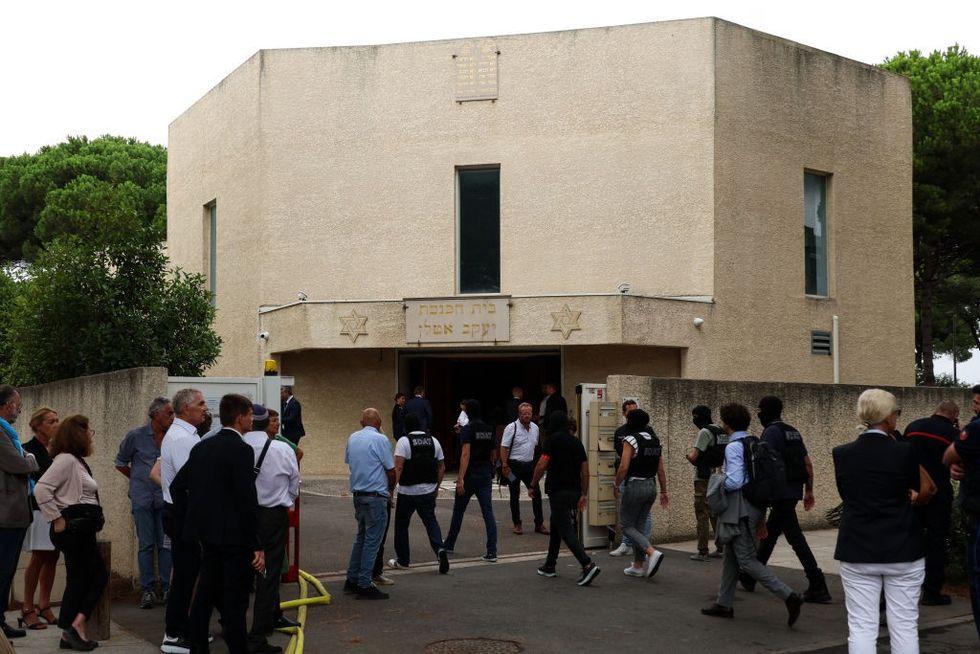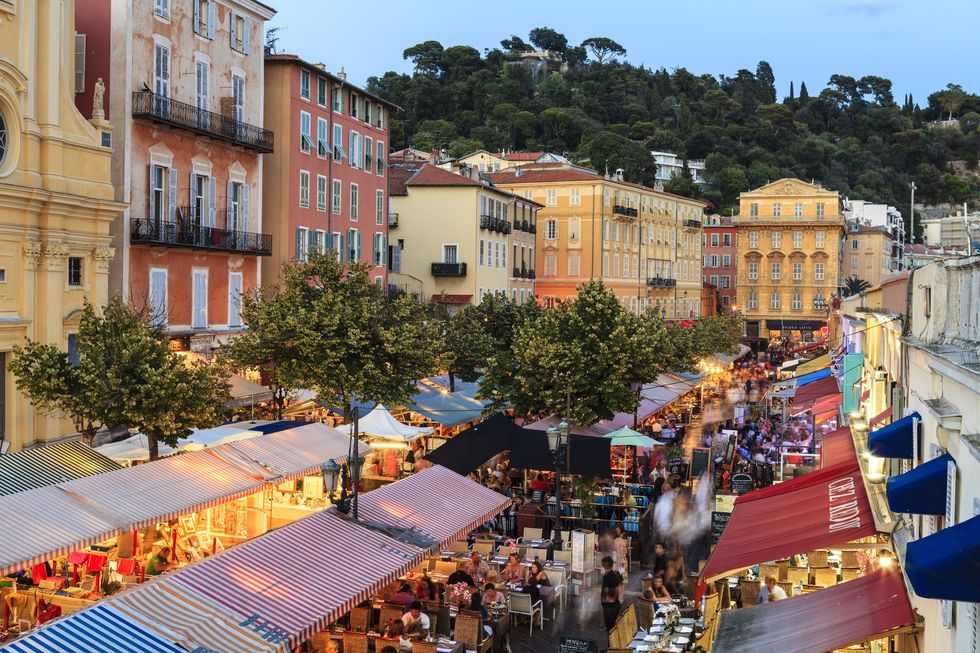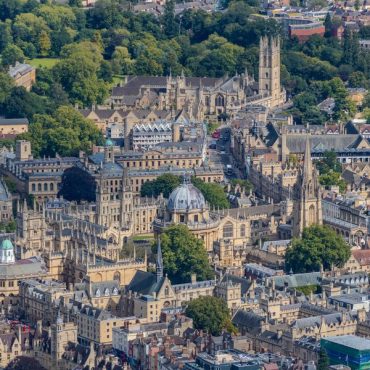France is an extremely popular destination among holidaymakers and this summer in particular has brought in a tremendous amount of tourists due to the Paris 2024 Olympic and Paralympic Games.
The Foreign, Commonwealth and Development Office (FCDO) has provided new guidance on holidaying in France, giving additional security information.
Arson incident outside synagogue in La Grande-Motte
The FCDO said: “We are aware of reports of an explosion outside a synagogue in La Grande-Motte, near Montpellier, on August 24, 2024. You should be vigilant and follow the advice of local authorities.”
Terrorism
The FCDO warned: “There is a high threat of terrorist attack globally affecting UK interests and British nationals, including from groups and individuals who view the UK and British nationals as targets. Stay aware of your surroundings at all times.
“UK Counter Terrorism Policing has information and advice on staying safe abroad and what to do in the event of a terrorist attack.” Here, Britons can find out how to reduce their risk from terrorism while abroad.

The FCDO said: ‘We are aware of reports of an explosion outside a synagogue in La Grande-Motte’
GETTY IMAGES
Holidaymakers were warned: “Terrorists are very likely to try to carry out attacks in France in the near future.
“Terrorism attacks could be indiscriminate, including in places visited by tourists and foreign nationals such as shopping centres, entertainment establishments and nightlife venues, sporting and cultural events, public transport and national and international transport hubs, places of worship, crowded places and public gatherings.
“Methods of attack have included knife attacks, shootings, bombings and vehicle attacks. Be vigilant in public places and follow the advice of local French authorities.”
There have been several recent high-profile terrorist attacks in France. In 2023, one person was killed in a knife and hammer attack in central Paris. In the same year, a teacher was killed in a knife attack at a school in Arras.
The FCDO said: “French authorities regularly report that they have disrupted planned attacks and made arrests.”
Industrial action and demonstrations
Britons were advised: “There can be frequent industrial action across France. This can lead to disruption and delays on roads and public transport. If you’re due to travel to or within France, monitor the media, check your operator’s advice and follow the advice of the authorities.”
Crime
Protecting your belongings
Britons were told to protect their belongings, with the FCDO offering important guidance on how to do so.
Tourists were advised: “Take sensible precautions against street crime and car crime. Pickpockets can work in gangs; one distracts you while the other one goes into your bag.
“Thieves and pickpockets operate on the Paris Métro, on RER (train) lines and at mainline stations. To reduce the risk of theft, keep your passport, credit cards and other valuables in separate bags or pockets, use the inside compartments in bags where possible, carry your bag across your body rather than on your shoulder, keep your belongings close to you in restaurants and bars, do not leave any valuables in your vehicle and do not get distracted around tourist attractions and ATMs.”
Assaults
Britons were warned that “there have been several cases of serious assault” on the RER line B. There have also been serious assaults on RER line D, which serves the Stade de France.
Drink spiking and sexual assault
Britons should also be alert to the possible use of ‘date rape’ and other drugs including GHB and liquid ecstasy.
The FCDO advised: “Buy your own drinks and always keep them in sight to avoid them being spiked. Alcohol and drugs can reduce your vigilance, making you less in control. If you drink, know your limit. Drinks served in bars in France are often stronger than those in the UK.”
LATEST DEVELOPMENTS

France is a popular destination among Britons
GETTY IMAGES
Laws and cultural differences
Personal ID
Holidaymakers must be able to prove their identity by providing documents when asked or within four hours at a police station. Accepted IDs are a passport, photocard driving licence and other documentation provided by a government body.
Face-covering ban
The FCDO also provided a warning on the face-covering ban. The UK Government department said: “Covering your face in public places in France is illegal. This includes balaclavas, full veils or any other garment or mask that is used to hide the face. You could get a fine of up to 150 euros if you do not comply.
“Forcing someone to hide their face is also a crime and is punishable by a year’s imprisonment and a fine of up to 30,000 euros. If the person forced to hide their face is under 18 years old, the sentence is doubled. This law applies to tourists.”
The FCDO also provided essential information on outdoor activities and adventure tourism, including swimming safety, watersports, trekking, mountaineering and winter sports.
Britons were also given guidance on transport risks, including road travel, penalties, air pollution sticker, road safety and thefts from caravans and camper vans.
They were warned about the risk of people trying to enter their vehicle. The FCDO said: “There have been attempts by people to enter private vehicles with a view to entering the UK illegally. They may target vehicles like camper vans while stationary or in slow-moving traffic. Sometimes people might try to slow down traffic on roads to ports, including by placing obstacles on the Calais Port road.
“Keep car doors locked, keep moving where it’s safe to do so, and do not leave your vehicle unattended. If it is not safe to proceed, stop and call 112.”
Britons going to France should also consult the FCDO’s information on extreme weather and natural disasters, including wildfires, flooding and avalanches.
Holidaymakers have recently been warned about the risk of wildfires in a European destination.













Post comments (0)